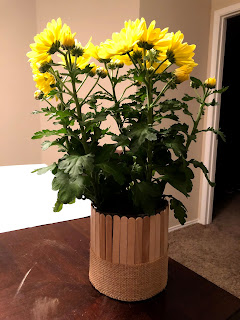From high school to nursing home: 20-year-old learns to cope with fatal disease
Sioux City Journal
siouxcityjournal.com
This was a post made online in the Sioux City Journal about a young girl, Desiree Buettner, who began showing the symptoms of Huntington's disease at 18 years old. Her mom passed away form Huntington's when she was only 26 years old. Even though Desiree knew that there was a good chance she would get the disease, it still left her feeling depressed when having to cope with the symptoms at such a young age. She had to move into a skilled nursing facility because she needs so much assistance with tasks such as grooming and she even has difficulty talking. The staff has done a lot to make her feel comfortable inside the home, because she is by far the youngest resident. They made a bucket list with her and have been doing things on it like going to Disney World. Her room is decorated with posters and she has video games to play that not only entertain her, but it also keeps her hands and fingers moving and working those fine motor muscles. It mentions how she couldn't play sports because she was so clumsy (from the Huntington's) and she never got the opportunity to graduate high school. That is a big lifestyle change for a 20 year old girl, especially a young girl who knows her fate, but she is taking it in stride and dealing with it in the best way possible.
I chose this post because this girl is not that much younger than me. I know how much I have gotten to experience since high school and the opportunities I have had to be out on my own and learn and try new things. For her, this isn't an option. She can't be "out on her own." I just relate to it because I couldn't imagine, at my age, to have to live in a skilled nursing facility. I have spent a lot of time in SNFs, and they are not an environment for a young girl.
What I learned most through reading this is how these types of diseases do not care. They present in someone when they want and how they want. This girl, who knew what her odds of developing this disease were, didn't even get to finish out high school before it took over to the point of where she needed assistance with almost everything. I also think it is interesting that her mom had juvenile Huntington's as well. While we know the this disease is a family disease, I was surprised to see that Desiree also presented with juvenile Huntington's since the disease usually doesn't present until the 30s. I also learned how important it is to have such a big support system; whether that be family, caregivers, or friends it is important to have people around you that care and want to help you experience all that life can offer when what is inevitable is known. The staff at her skilled nursing facility took her to Disney World because she didn't have the chance to go before. they rode rides and stood in lines for hours so she could get pictures with all of the Disney princesses because that is what SHE wanted to do. I think it is special to see that there are people willing to go to that extremes to help people and put a smile on someone's face.



